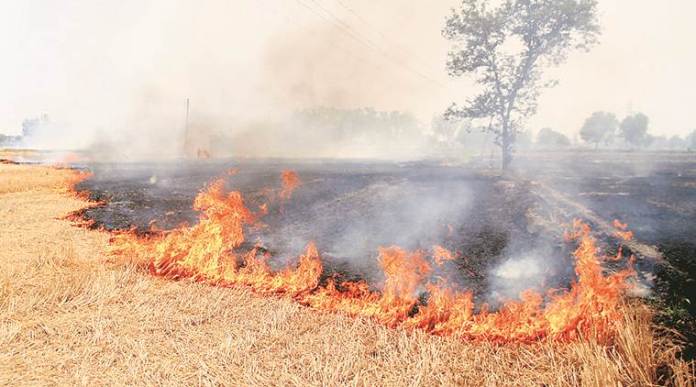It is a death no one will mourn. The Commission For Air Quality Management (CAQM) in the National Capital Region, created by an ordinance promulgated on October 28th,2020 — in fact a super commission that on paper subsumed all the other bodies involved in maintaining air quality in the NCR — was quietly disbanded, as the Ordinance lapsed. No bill to implement it was even introduced, let alone passed during the Parliament’s 2021 budget session. According to Press Trust of India, Union Environment Secretary R P Gupta said that since the ordinance was not introduced in Parliament within six weeks of its convening, it has lapsed and consequently, the commission also was dead.
The power-packed overarching 18-member body, made up largely of bureaucrats, had done absolutely nothing to improve air quality in NCR till March 12th, when it ceased to be. It did not have an office, a web site or contact numbers. People could not contact the CAQM to address their concerns, and worse, they could not knock at the doors of the courts for relief. For the Ordinance took away the Supreme Court’s jurisdiction over matters of air pollution.
Read more: A super commission to check air quality in the National Capital Region
But with the Ordinance lapsing, the Supreme Court is back in the business of hearing pleas on pollution issues in the NCR.
Government vs Judiciary
In a sense, it was clear from the word go that this Ordinance was primarily meant to get the Supreme Court to drop its decision to appoint retired justice Madan B Lokur as a one-man committee to take steps to prevent stubble burning in Punjab, Haryana and Uttar Pradesh when the capital and surrounding areas had virtually become a gas chamber in October last.
Chief Justice S A Bobde had announced the decision to appoint the one-man committee on October 16th last year. “We want the people of Delhi/NCR to be able to breathe fresh air without any pollution,” the SC had then observed. In response, at the next hearing on October 26th, Solicitor General Tushar Mehta said the Centre had taken a “holistic view” and was planning a “comprehensive law” and a “permanent body” to monitor and control air pollution. And on October 29th, Mehta presented the 24-page ordinance to the Supreme Court bench.
Read more: Delhi struggles to breathe; can the new super commission bring relief?
From that moment, the apex court could not entertain pleas or give directions on pollution control measures like a ban on paddy stubble burning, disallowing diesel generators, closing coal-based industries etc, which till then had been driven entirely by the SC. The Environment Pollution Control Authority (EPCA) used to report to the Supreme Court, and on that basis, the court would give directions.
In other words, the only purpose the ordinance and the CAQM served were to edge out the Supreme Court in what had become a battle between the government and the judiciary, and keep retired justice Lokur at bay.
Read more: Delhi: Super commission fiddles while air pollution turns deadly
The government had in fact issued many other ordinances during 2020. Among them are the Farmers’ Produce Trade and Commerce (Promotion and Facilitation) Ordinance, 2020; The Farmers (Empowerment and Protection) Agreement on Price Assurance and Farm Services Ordinance, 2020 and The Essential Commodities (Amendment) Ordinance, 2020, all promulgated last June. They were introduced as bills in the very next session of Parliament and became laws despite tremendous controversy, objections, pandemonium etc in both houses of Parliament in September. The farmers protests at Delhi’s border, the anger and subsequent exit of the old political ally, the Shiromani Akali Dal from the NDA notwithstanding, the Modi government did not let those ordinances lapse!
Non-performing commission
So did the government deliberately dump the CAQM ordinance once the formation of the Justice Lokur committee was stalled?
What gives credence to this belief is the total non-performance of the Commission itself. The Press Information Bureau’s press releases were the only way of knowing what was happening in the Commission. According to these, it first met on November 9th, and urged the public to follow measures that would help curb air pollution. On December 23rd, it called for strict action against violators of construction and demolition waste rules and guidelines, and enforcement of dust control measures.
NCR residents neither saw nor heard of any steps being taken at the behest of the CAQM. About two months before this Ordinance, the Supreme Court had given directions for construction of a couple of smog towers in the capital, on which work is going on as per the SC’s directions and timeline.
With the Ordinance lapse and the Supreme Court firmly back in the driver’s seat, one can expect to hear directions and instructions as before, and there is hope that the concerned agencies will act on them.
However, there is always the possibility that the government will promulgate the CAQM ordinance once again. And for the same reason—to keep the SC out of the pollution control business.
Also read:
